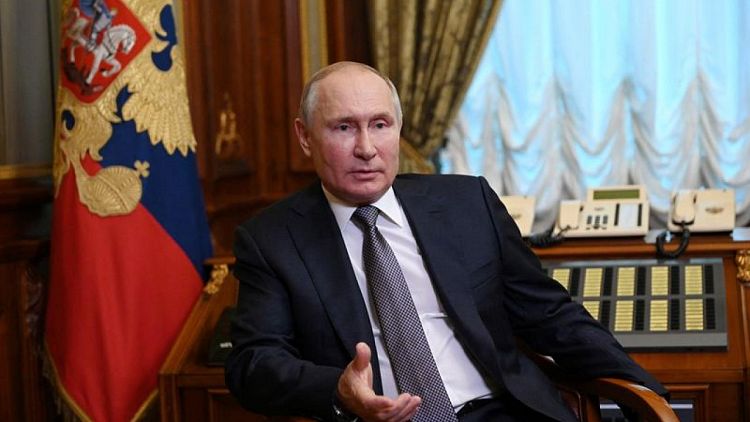By Mark Trevelyan
- Ukraine has become the main flashpoint in Russia's relations with the West after a build-up of tens of thousands of Russian troops near its border and a series of tough statements from President Vladimir Putin setting out his "red lines".
Here are three sets of reasons why Putin feels so strongly about Ukraine and has chosen to bring the crisis to a head.
HISTORY
With the 1991 break-up of the Soviet Union, Russia lost control of 14 former republics it had previously dominated, but the loss of Ukraine was the bitterest pill.
The two had been linked since the 9th century when Kyiv became the capital of the ancient Russian state of Rus; in 988 its ruler, Grand Prince Vladimir, introduced Orthodox Christianity to Russia. From 1654 Russia and Ukraine were united by treaty under the rule of the Russian tsar.
The two countries speak closely related languages and later formed, with Belarus, the Slav core of the Soviet Union.
Many Russians feel a connection with Ukraine that they do not feel towards other former Soviet states in the Baltics, Caucasus and Central Asia.
Putin alluded to this in an article in June in which he said Russians and Ukrainians were one people who shared a "single historic and spiritual space" and that the emergence of a "wall" between them in recent years was tragic. Kyiv rejected his argument as a politically motivated and over-simplified version of history.
GEOPOLITICS
Since the Cold War ended, NATO has expanded eastwards by taking in 14 new countries, including the states of the former Warsaw Pact and the three Baltic nations that were once in the Soviet Union. Russia saw this as a threatening encroachment towards its borders.
Ukraine is not a NATO member but has a promise dating from 2008 that it will eventually get to join. Since toppling a pro-Russian president in 2014, it has moved closer to the West, staged joint military exercises with NATO and taken delivery of weapons including U.S. Javelin anti-tank missiles and Turkish drones. Kyiv and Washington see these as legitimate moves to bolster Ukraine's defence after Russia seized the Crimea region in 2014 and provided backing to separatists who are still fighting government forces in eastern Ukraine. Putin says Ukraine's growing ties with the alliance could make it a launchpad for NATO missiles targeted at Russia.
Russia rejects Ukrainian and U.S. suspicions it may be preparing an invasion of Ukraine, saying it is only responding to threats and provocations. It wants security guarantees from the West including the rescinding of NATO's membership promise to Kyiv.
PUTIN'S MINDSET AND MOTIVES
As a leader who tolerates virtually no domestic opposition, Putin has a strong aversion to revolutions in neighbouring countries that could encourage protests in Russia. In Belarus, he helped prop up veteran leader Alexander Lukashenko after mass demonstrations last year. In Ukraine's case, the notion of a democratic, prosperous close neighbour en route to possible membership of the European Union and NATO is unpalatable and potentially threatening for Putin if it inspires Russians with a pro-Western vision.
Maintaining tension over Ukraine helps Putin reinforce a political message in Russia: that he is a resolute defender of Russia's interests in a world where it is surrounded by enemies and threats. Keeping the West guessing about a possible invasion of Ukraine has put Russia high on the international agenda and forced U.S. President Joe Biden to re-engage with Putin in a video call on Dec. 7.
Putin's public statements suggest his actions are driven by personal conviction as well as political tactics. He may also be pondering his own legacy -- he could run for up to two more six-year terms once his current mandate expires in 2024. In an interview broadcast on Dec. 12, he mourned the collapse of the Soviet Union as the demise of "historical Russia", in which "what had been built up over 1,000 years was largely lost". Such statements support the view of some analysts that Putin sees Ukraine as "unfinished business" and wants to follow the seizure of Crimea - which boosted his popularity in Russia - with further action to bring part or all of Ukraine back under Moscow's control.
